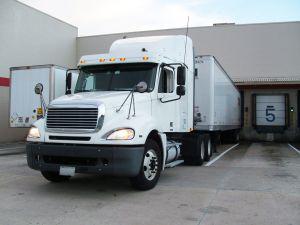Leasing Companies Can Provide Administrative Services, Too
Written by Ryder Fleet Management Solutions
Most fleets lease trucks to keep their capital intact, relieve themselves of vehicle maintenance and offset other challenges of ownership. They are also finding, however, that full-service leasing can take care of administrative, driver-related and other non-vehicle tasks as well.
“Some full-service fleets handle fuel tax reporting, which is labor-intensive,” says Darry Stuart, president of Wrentham, MA-based DWS Fleet Management Services. Although most leased fleets offer electronic recording of mileage driven in each state, some fleet owners (as well as owner-operator fleets) still prefer paper logs. Full-service leasing companies have the ability to aggregate both types of data for tax reporting, which can be placed online and accessed by fleets on demand. This administrative service allows clients to keep tabs on their fuel usage and tax consequences on an ongoing basis, so there are no surprises when payments are due.

Most leased companies also offer paperless tracking of driver hours and use this to keep fleet owners informed about driver compliance. With a re-emphasis on hours-of-service (HOS) observance coming from Compliance, Safety, Accountability (CSA) regulations initiated by the Federal Motor Carrier Safety Administration, many fleets struggle with meeting the requirements as well as handling their costs. This is where full-service leasing can help fleets meet their regulatory obligations without tying up additional capital or labor.
By making use of GPS—not just for miles tracking, HOS and fuel tax audits—full leasing companies can also offer geofencing; real-time location; and tracking of driver habits such as hard braking, speed, out-of-route operation and unauthorized use. Fleet officials usually can either track these issues in real-time over the internet or receive an alert from the leasing company when a specified event occurs. This alert system saves fleets time and effort in keeping tabs on their vehicles and drivers.
Full-service leasing companies also have expanded other driver services to include things such as drug and alcohol testing through third-party providers. This relieves fleets of the task of finding testers and keeping records pertaining to the test results. Most important, the third-party testers make certain that the results are kept on file, organized, confidential and defensible should a legal issue arise. Some full-leasing companies also offer assistance with driver hiring and background checks. Once a driver is in place, leasing companies can make sure that driver compliance records are up-to-date, records are secured and available for regulatory audits, and that upcoming expirations are dealt with in plenty of time so the driver stays on the road.
Fleets can also use driving training services offered by leasing companies, including in-house training, driver meetings, distance training and online and DVD training modules. These include instruction on record keeping, safety and securement.
Copyright 2012 Fleet Owner. Reprinted with permission. All rights reserved.

